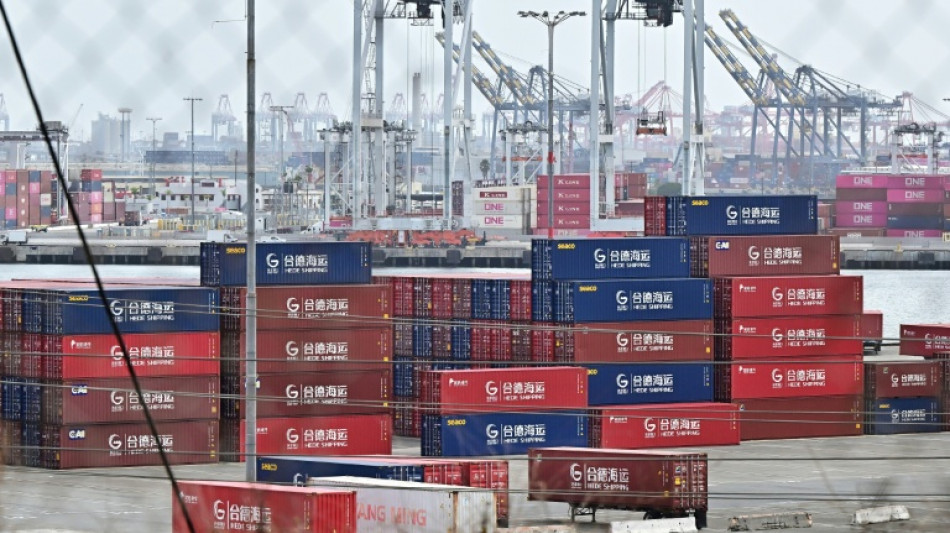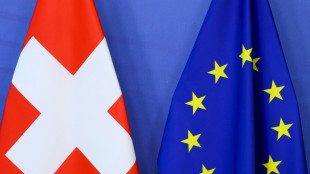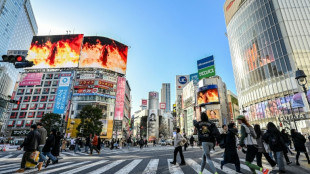

China's economic growth slowed to 4.8% in third quarter: AFP poll
China's economy likely grew at its slowest pace in a year last quarter, according to an AFP survey, dragged down by lacklustre demand and a crisis in the crucial property sector, compounded by a trade war with the United States.
Beijing has struggled to kickstart a full recovery from the Covid-19 pandemic, which hammered sentiment among the country's army of consumers, even after a series of measures aimed at stimulating buying.
The growth reading Monday will come as the ruling Chinese Communist Party kicks off a key meeting to formulate policy directions in the next five-year period -- a period experts warn could present more hurdles for growth.
Authorities will also announce other closely watched data Monday, including on retail sales and factory output, providing an extra insight into the state of the economy.
The survey of analysts by AFP forecasts the world's number two economy expanded 4.8 percent on-year in July-September.
That would be below the 5.2 percent expansion in the previous three months and mark the slowest pace since the same period last year. It would also fall short of Beijing's official annual target of around five percent.
"The economy is clearly decelerating, not drastically... but noticeably," Alicia Garcia-Herrero, Asia-Pacific chief economist at Natixis, told AFP.
The "main issue" is the consumption slump, she said, describing recent data as evidence of "really bad deflationary pressure".
"On top of that, there are increasing fragilities on the fiscal side with local governments," said Garcia-Herrero, referring to massive debt that has prevented several provinces from being able to service their loans.
She noted that China's exports -- which have remained strong despite the US trade war -- and hefty infrastructure investment mean such deeply rooted problems are not necessarily evident in headline gross domestic product figures.
Official data showed this week that consumer prices in China fell again in September after reaching a six-month low in August.
Economists argue the country needs to shift towards a growth model driven mainly by domestic spending, as opposed to infrastructure and property development.
Such a transition is likely to be on the table at next week's gathering of Party officials, Teeuwe Mevissen, senior China economist at Rabobank, wrote in a recent note.
- Policy support -
Another thorny problem facing policymakers is China's vast property sector -- driven for decades by rapid urbanisation and improvements in living standards -- but now mired in a debt crisis that began in 2020.
The downturn has spooked would-be homebuyers, dampened investment and left many major projects unfinished after several of the sectors' top firms defaulted.
Authorities have in recent years introduced various measures to boost the sector, including by scrapping various restrictions on property purchases, but results have been mixed.
This year has brought added headwinds with US President Donald Trump embarking on a global trade war that has a particular emphasis on China.
The row saw the two slap each other with eye-watering tariffs this year, and while they have reached a shaky detente, tensions continue to simmer.
Still, exports from the manufacturing powerhouse have proven resilient, with many shipments diverted to alternative markets including in Southeast Asia.
Data this week showed trade grew faster than expected in September, with exports expanding at a forecast-topping 8.3 percent year-on-year, the fastest since March.
"While business with the United States has dropped off, China's involvement in other markets has improved," Heron Lim, lecturer of economics at ESSEC Business School, told AFP.
"This realignment of supply chains has kept the factory lights on."
But Guo Shan of Hutong Research told AFP that while the export figures were healthy, "hitting the (annual five percent) target does require more policy support".
She added that she expected the meeting next week to focus on "policies to promote consumption, services and innovation".
A.Parmentier--JdB



